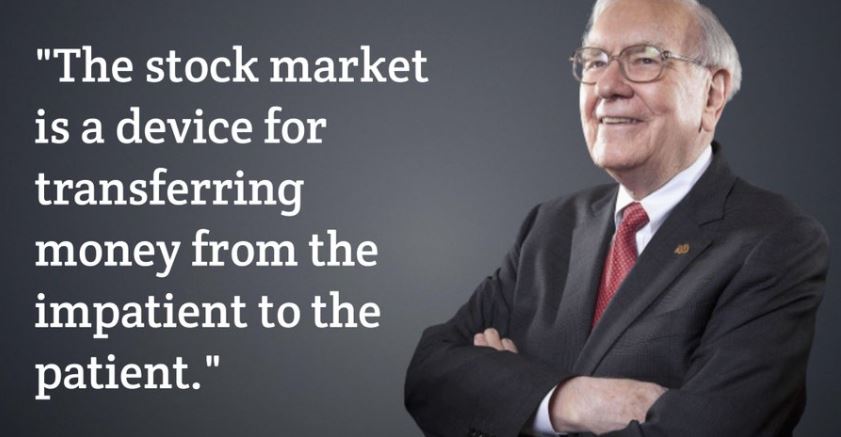Patience is often touted as a virtue in investing. It allows investors to weather the storms of market volatility and take advantage of the power of compounding over time. Rather than seeking quick gains or reacting hastily to market fluctuations, investors who practice patience tend to stay focused on their long-term financial goals. These goals may include wealth accumulation, retirement planning, or funding major life milestones. It involves staying focused on the bigger picture, setting realistic expectations, and adopting strategies to manage impatience when it arises.
To exercise patience and benefit from it in the market, one must master the following:
Emotional control
While emotions can play a significant role in investing for many people, one must employ a disciplined approach to investing. It emphasizes a long-term perspective, fundamental analysis, and a focus on businesses rather than short-term market fluctuations.
“Be fearful when others are greedy and greedy when others are fearful.”
Waren Buffett
Warren Buffett adopted a contrarian approach to investing. This approach involves taking advantage of opportunities when the market undervalues good companies due to temporary setbacks or negative sentiment.
Buffett’s success stems from his ability to remain calm and rational even during periods of market volatility or economic uncertainty. He famously advises investors to ignore short-term fluctuations in stock prices and instead focus on the underlying fundamentals of the businesses they invest in.
He advises against making impulsive decisions driven by fear or greed, which can lead to costly mistakes. In essence, while emotions are inherent to human nature and can influence investment decisions, Buffett’s approach emphasizes discipline, patience, and a focus on long-term value creation.
Compound interest
Warren Buffett often emphasizes the power of compounding as one of the key principles behind his successful investment strategy. Compounding refers to the process whereby investment returns generate additional earnings, which are then reinvested to generate further returns. Over time, this can lead to exponential growth in wealth. Buffett’s approach to compounding involves investing in high-quality companies with strong competitive advantages and holding onto them for the long term. By reinvesting dividends and allowing capital gains to accumulate over time, he takes advantage of the compounding effect to maximize returns.
“My wealth has come from a combination of living in America, some lucky genes, and compound interest.”
Warren Buffett on compounding
Opportunistic buying
Opportunistic buying involves having the conviction to go against the prevailing market sentiment and the courage to act decisively when opportunities arise. Successful opportunistic buyers are often able to generate outsized returns by buying low and selling high over the long term.
Warren Buffett is known for his opportunistic approach to investing, particularly during times of market turmoil or economic downturns. He has famously stated, “Be fearful when others are greedy and greedy when others are fearful,” emphasizing the importance of contrarian thinking and seizing opportunities when others are pessimistic.
Overall, opportunistic buying can be a powerful strategy for investors who are willing to do their homework, remain patient, and capitalize on market inefficiencies and mispricing to build wealth over time.
Risk management
While Warren Buffett famously stated that “risk comes from not knowing what you’re doing,” his strategies and principles inherently involve managing risk effectively. Some key aspects of risk management in investing as exemplified by Buffett are Focus on understanding, margin of safety, having a Long-time perspective, diversification, avoiding average, and maintaining cash reserves, and Staying Rational Amid Market Fluctuations.
Overall, Warren Buffett’s approach to risk management in investing is grounded in fundamental analysis, a long-term perspective, and a focus on preserving capital while seeking attractive returns.
Avoiding market timing
Instead of trying to time the market, Buffett advocates for a buy-and-hold strategy focused on investing in high-quality companies with strong competitive advantages, favourable long-term prospects, and attractive valuations. By taking a long-term view and focusing on the underlying fundamentals of businesses, investors can potentially achieve superior investment returns over time.
Overall, while market timing may seem enticing to some investors, Buffett’s track record and investment philosophy suggest that a patient, disciplined approach to investing is more likely to lead to long-term success.
